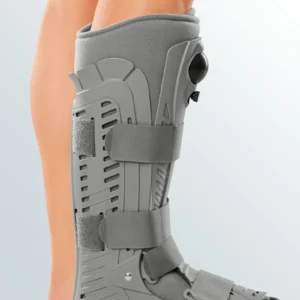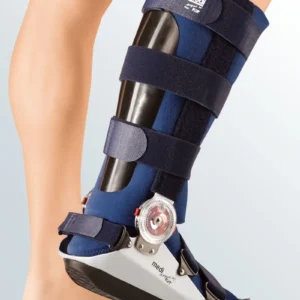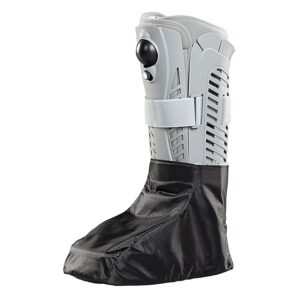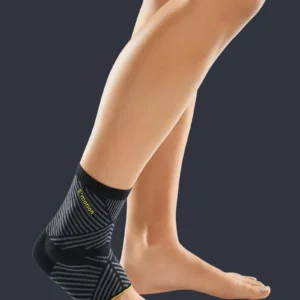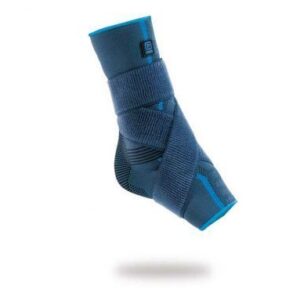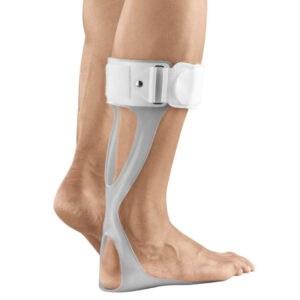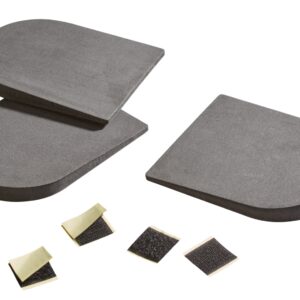Ankle Ligament Rupture
Ankle ligament rupture occurs when the ligaments that support the joint are stretched beyond their capacity, resulting in injuries that can range from mild stretches to complete ruptures. They can occur from a sudden twist or rotation, or even from direct impact with trauma affecting the ankle region.
Most common pathologies
on the ankle and leg
Symptoms
Acute pain usually occurs at the time of injury; Oedema (swelling) and haematoma are typical manifestations of the inflammatory response and are often present; Instability with a feeling of lack of support or control when walking.
Common Types of Ligament Injury: Anterior Talofibular Ligament Injury (ATFLI) - Common in ankle sprains, affecting the outside of the joint; Calcaneofibular Ligament Injury (CFLI) - Affecting the outside of the joint, often associated with severe sprains; Posterior Talofibular Ligament Injury (PTFLI) - Less common, affecting the back of the joint.
Risk Factors
History of previous injuries increases susceptibility to future injuries; High-impact activities such as sports involving rapid changes of direction and jumping.
Protective Factors
Exercises to strengthen the muscles around the ankle; Adequate warm-up: Wearing shoes provides additional support.
Treatment
R.I.C.E.: Rest, Ice, Compression and Elevation for initial symptom control.
Temporary immobilisation may be necessary; Rehabilitation exercises, strengthening and improving range of movement; In severe cases, when the injury is extensive and does not respond to conservative treatment, surgery may be indicated.
Information: All the information contained here is merely a summary for a general understanding of the pathologies, highlighting their definition, symptoms, risk factors, protective measures and treatment options.
Consulting a specialised health professional is essential for an accurate diagnosis and an effective treatment plan.
Support and protection for ruptured ankle ligaments
Discover all the orthotics for ankle ligament rupture
-
Seleccione Opções This product has multiple variants. The options may be chosen on the product page
-
Seleccione Opções This product has multiple variants. The options may be chosen on the product page
-
Seleccione Opções This product has multiple variants. The options may be chosen on the product page
-
Seleccione Opções This product has multiple variants. The options may be chosen on the product page
-
Seleccione Opções This product has multiple variants. The options may be chosen on the product page
-
Seleccione Opções This product has multiple variants. The options may be chosen on the product page
-
Seleccione Opções This product has multiple variants. The options may be chosen on the product page
-
Seleccione Opções This product has multiple variants. The options may be chosen on the product page
-
Seleccione Opções This product has multiple variants. The options may be chosen on the product page
-
Seleccione Opções This product has multiple variants. The options may be chosen on the product page
Stabilising elastic foot with silicone pads and "8" elastic band
27,95 €Avaliado 0 out of 5( 0 comentários ) -
Seleccione Opções This product has multiple variants. The options may be chosen on the product page
-
Seleccione Opções This product has multiple variants. The options may be chosen on the product page

